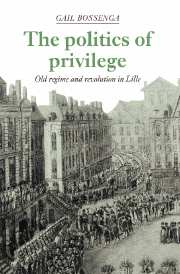Crossref Citations
This Book has been
cited by the following publications. This list is generated based on data provided by Crossref.
1994.
A Rhetoric of Bourgeois Revolution.
p.
198.
1994.
A Rhetoric of Bourgeois Revolution.
p.
66.
1994.
A Rhetoric of Bourgeois Revolution.
p.
109.
1994.
A Rhetoric of Bourgeois Revolution.
p.
41.
1994.
A Rhetoric of Bourgeois Revolution.
p.
185.
1994.
A Rhetoric of Bourgeois Revolution.
p.
205.
1994.
A Rhetoric of Bourgeois Revolution.
p.
1.
1994.
A Rhetoric of Bourgeois Revolution.
p.
145.
Tilly, Charles
1995.
The Emergence of Citizenship in France and Elsewhere.
International Review of Social History,
Vol. 40,
Issue. S3,
p.
223.
Pilbeam, Pamela M.
1995.
Republicanism in Nineteenth-Century France, 1814–1871.
p.
40.
Black, Jeremy
1999.
Eighteenth-Century Europe.
p.
164.
Potter, Mark
2000.
Good Offices: Intermediation by Corporate Bodies in Early Modern French Public Finance.
The Journal of Economic History,
Vol. 60,
Issue. 3,
p.
599.
Haupt, Heinz-Gerhard
2002.
Das Ende der Zünfte.
p.
9.
Potter, Mark
and
Rosenthal, Jean-Laurent
2002.
The Development of Intermediation in French Credit Markets: Evidence from the Estates of Burgundy.
The Journal of Economic History,
Vol. 62,
Issue. 4,
p.
1024.
Swann, Julian
2003.
Provincial Power and Absolute Monarchy.
Crowston, Clare Haru
2005.
L’apprentissage hors des corporations. Les formations professionnelles alternatives à Paris sous l’Ancien Régime.
Annales. Histoire, Sciences Sociales,
Vol. 60,
Issue. 2,
p.
409.
Campbell, Peter Robert
2006.
The Origins of the French Revolution.
p.
1.
Swann, Julian
2006.
Les États généraux de Bourgogne : un gouvernement provincial au siècle des Lumières.
Revue d’histoire moderne & contemporaine,
Vol. n o 53-2,
Issue. 2,
p.
35.
Bossenga, Gail
2007.
Origins of the French Revolution.
History Compass,
Vol. 5,
Issue. 4,
p.
1294.
Wolfe, Michael
2009.
Walled Towns and the Shaping of France.
p.
171.





